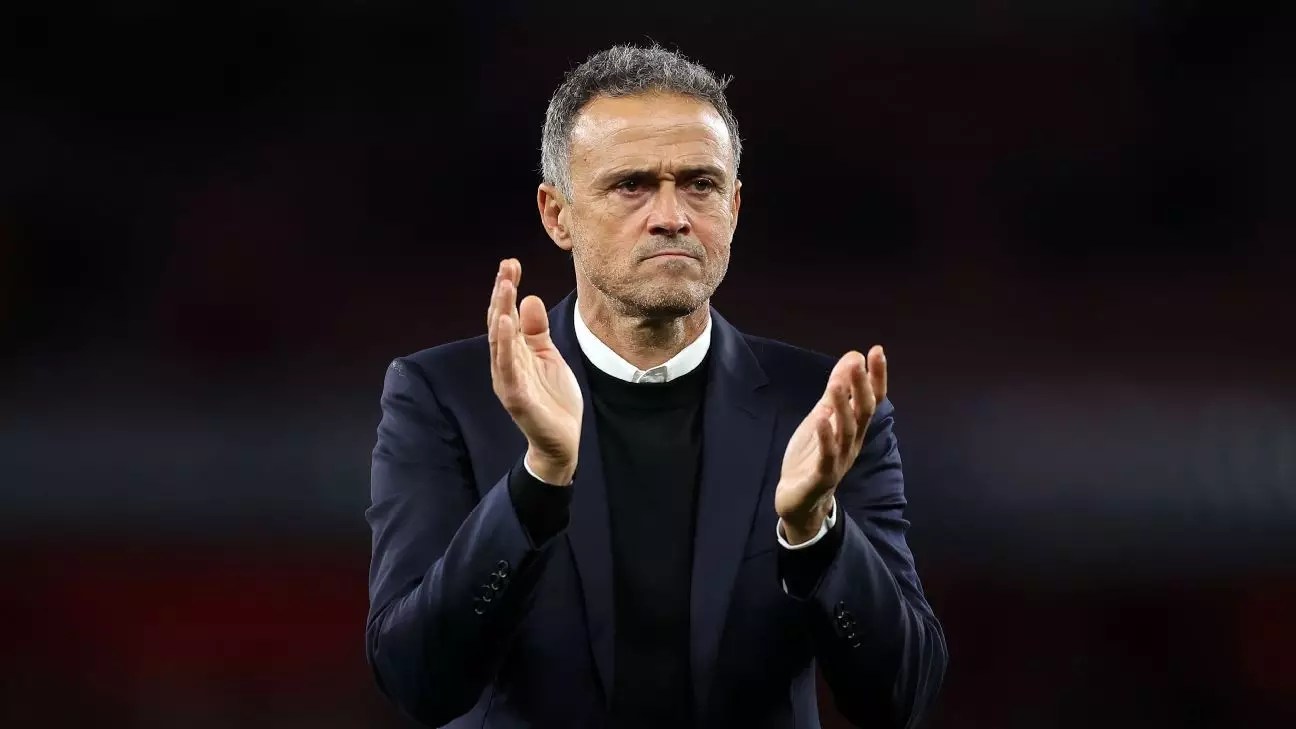In the high-stakes world of football management, the ability to make tough decisions is crucial for success. Recently, Paris Saint-Germain (PSG) manager Luis Enrique exhibited this necessary trait by making the contentious choice to drop Ousmane Dembélé for disciplinary reasons. This decision came during a critical phase in the Ligue 1 season, marked by both the absence of star player Kylian Mbappé and the urgency to maintain momentum. Dembélé, who has made a strong start to the season, was not only a key player but also became a focal point of PSG’s offensive strategy. His proficiency on the field with four goals and four assists made his absence particularly felt as the team faced off against Arsenal in the Champions League, resulting in a disappointing 2-0 defeat.
Disciplinary Measures and Team Dynamics
Enrique’s decision to bench Dembélé, reportedly after an argument between the two, raises important questions about management styles and the necessity of discipline in maintaining a cohesive team environment. While the specifics of the “serious mistake” committed by Dembélé remain unspoken, Enrique emphasized the importance of every player meeting their obligations, indicating that accountability is a non-negotiable aspect of professional sports. The manager’s statement highlighted his dual role: being tough when necessary while also showing leniency when appropriate. This balancing act is critical, as it sets the tone for team culture and influences how players respond to crises, whether on or off the pitch.
Enrique’s firm stance illustrates the challenges that a manager faces when navigating the complexities of player conduct. It also mirrors a broader theme in sports management: that the individual player’s success is often intertwined with the team’s overall performance. For PSG, losing a match—especially against a formidable opponent like Arsenal—while being atop the Ligue 1 table complicates the assessment of Enrique’s leadership. Despite this setback, he expressed confidence in the team’s ability to bounce back, highlighting the importance of mindset and resilience in the face of defeat.
Assessing Team Performance and Future Challenges
Despite the recent loss, PSG’s position as league leaders with 16 points underscores the team’s strong start to the season. However, Enrique’s acknowledgment of the team’s imperfections suggests a proactive approach towards continuous improvement. The willingness to reflect on past performances, such as the match against Arsenal, while preparing for upcoming challenges demonstrates a growth-oriented mindset that is essential in a competitive landscape.
Looking ahead, PSG’s encounter with Nice—currently positioned ninth in the league—presents another hurdle. New coach Franck Haise has already implemented an effective defensive strategy, making Nice a formidable opponent. Enrique’s analysis of their style of play emphasizes their strong defensive organization, hence the prediction of a challenging match ahead. This situational awareness not only prepares the players for the specifics of their opponent’s strategy but also reinforces the importance of discipline and team synergy as they navigate the rigors of the season.
As Luis Enrique steers PSG through this tumultuous season, the implications of his decisions—especially those involving player discipline—will undoubtedly shape the team’s path forward. Dropping a key player like Dembélé may risk immediate success, but it also lays the groundwork for establishing a culture of accountability. In a league characterized by intensity and competition, the ability to bounce back from adversity while remaining committed to team dynamics will be paramount.
Ultimately, the interplay between discipline and performance in a high-pressure environment like PSG can define success or failure. With key matches coming up, the team’s response to setbacks and the management of player behavior will be critical. As fans and analysts alike watch closely, the unfolding story at PSG continues to highlight the intricate balance required in professional sports management. The stakes are high, and for now, the balancing act prevails as the team aims not only for league dominance but also for success on the European stage.


Leave a Reply